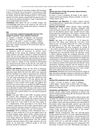 November 2024 in “Journal of Clinical Medicine”
November 2024 in “Journal of Clinical Medicine” The treatment improved hair thickness, shine, and reduced hair loss effectively.
 July 2022 in “Berkala Ilmu Kesehatan Kulit dan Kelamin/Berkala ilmu kesehatan kulit dan kelamin (Periodical of dermatology and venerology)”
July 2022 in “Berkala Ilmu Kesehatan Kulit dan Kelamin/Berkala ilmu kesehatan kulit dan kelamin (Periodical of dermatology and venerology)” Most tinea capitis patients were young boys with cat contact, had scaly patches caused by Microsporum canis, and improved with griseofulvin treatment.

Detailed history and physical examination are crucial for diagnosing hair loss.
 April 2016 in “Journal of The American Academy of Dermatology”
April 2016 in “Journal of The American Academy of Dermatology” Spironolactone use is not linked to an increased risk of breast cancer, but caution is advised for high-risk patients.
 3 citations,
December 2020 in “Endocrine and metabolic science”
3 citations,
December 2020 in “Endocrine and metabolic science” The healthcare for transgender veterans could be better with a more unified team approach.
 July 2023 in “Journal of Cutaneous and Aesthetic Surgery”
July 2023 in “Journal of Cutaneous and Aesthetic Surgery” Combining platelet-rich plasma with other treatments may improve hair growth in people with hair loss, but more research is needed.
 15 citations,
April 2016 in “Eye”
15 citations,
April 2016 in “Eye” Finasteride effectively treats central serous chorioretinopathy.
 January 2023 in “Dermatologic Therapy”
January 2023 in “Dermatologic Therapy” The nutritional supplement Pilopeptan® WOMAN improved hair growth and thickness in women with hair loss.
 1 citations,
December 2022 in “Biomedicines”
1 citations,
December 2022 in “Biomedicines” Middle-aged women with PCOS often continue to experience symptoms related to high androgen levels, like unwanted hair growth.
 July 2023 in “International journal of trichology”
July 2023 in “International journal of trichology” Platelet-rich Plasma (PRP) helps treat hair loss effectively, especially when prepared using the double-spin method.
 19 citations,
June 2018 in “Breast Cancer Research and Treatment”
19 citations,
June 2018 in “Breast Cancer Research and Treatment” Scalp cooling effectively prevents severe hair loss in breast cancer patients treated with docetaxel and is safe.
 22 citations,
March 2000 in “Clinical endocrinology”
22 citations,
March 2000 in “Clinical endocrinology” Most patients experienced hirsutism again after stopping hormone treatment, indicating long-term treatment is needed to maintain results.

Bilateral Orchiectomy effectively reduces the need for anti-androgen medication in most transgender females.
 September 2009 in “European Urology Supplements”
September 2009 in “European Urology Supplements” Cone beam computed tomography can allow for smaller safety margins around the target area in prostate cancer radiation treatment if used for ongoing treatment checks.
 October 2023 in “Journal der Deutschen Dermatologischen Gesellschaft”
October 2023 in “Journal der Deutschen Dermatologischen Gesellschaft” Pregnancy can trigger severe rosacea, which may be treated with antibiotics and steroids, but there's no clear treatment guideline.
 4 citations,
March 2021 in “Case Reports”
4 citations,
March 2021 in “Case Reports” A woman's excessive hair growth and masculine features were due to a rare benign ovarian tumor and endometrial cancer, which improved after surgery.
 36 citations,
October 2021 in “Frontiers in Endocrinology”
36 citations,
October 2021 in “Frontiers in Endocrinology” Insulin resistance and high male hormone levels are major causes of Polycystic Ovary Syndrome.
August 2022 in “International Journal of Health Sciences (IJHS)” The combined treatment significantly improved hair growth and thickness compared to the control group.
 7 citations,
August 2019 in “Journal of Ovarian Research”
7 citations,
August 2019 in “Journal of Ovarian Research” Blood removal and birth control pills both helped with hormone levels in women with PCOS, but birth control was better for regular periods and blood removal had fewer side effects.
 June 2019 in “The Medical journal of Basrah University”
June 2019 in “The Medical journal of Basrah University” Laparoscopic ovarian drilling helps infertile women with PCOS by improving menstrual regularity, ovulation, and chances of conception, and by changing hormone levels.
 1 citations,
January 1997 in “Dermatology”
1 citations,
January 1997 in “Dermatology” A woman lost her hair from stress after a bee attack and her sister's death.
 1 citations,
January 2018 in “PubMed”
1 citations,
January 2018 in “PubMed” Women with PCOS have a similar chance of getting pregnant using assisted reproductive treatment as those without PCOS.
 4 citations,
February 2011 in “Nature Reviews Endocrinology”
4 citations,
February 2011 in “Nature Reviews Endocrinology” Metformin and thiazolidinediones are similarly effective for PCOS, but metformin is often preferred due to fewer side effects.
 January 2025 in “HORMONES”
January 2025 in “HORMONES” Gender-affirming hormone treatments need better patient-focused outcome measurements and standardized data collection.
 52 citations,
June 2013 in “The Journal of Clinical Endocrinology and Metabolism”
52 citations,
June 2013 in “The Journal of Clinical Endocrinology and Metabolism” The research found that anovulatory young women have higher androgen and hormone levels than those who ovulate, suggesting immature hormonal regulation rather than a specific condition.
 3 citations,
January 2001 in “Cambridge University Press eBooks”
3 citations,
January 2001 in “Cambridge University Press eBooks” Finasteride effectively treats hair loss and enlarged prostate in men, with mild side effects.
 December 2024 in “Journal of the International Society of Sports Nutrition”
December 2024 in “Journal of the International Society of Sports Nutrition” Creatine monohydrate is safe and effective for muscle recovery and performance, especially for those with low creatine levels.
 11 citations,
September 2012 in “Journal of obstetrics and gynaecology Canada”
11 citations,
September 2012 in “Journal of obstetrics and gynaecology Canada” Testosterone therapy seems safe for short-term use in postmenopausal women with low sexual desire, but more research on long-term effects is needed.
 13 citations,
June 2018 in “Journal of Womens Health”
13 citations,
June 2018 in “Journal of Womens Health” Combination therapy with oral contraceptives and spironolactone improves hair growth, menstrual issues, and acne in women with PCOS.
 30 citations,
December 1999 in “International Journal of Dermatology”
30 citations,
December 1999 in “International Journal of Dermatology” Oral ivermectin effectively cured scabies with minimal side effects, and finasteride promoted hair growth in men with hair loss.





























